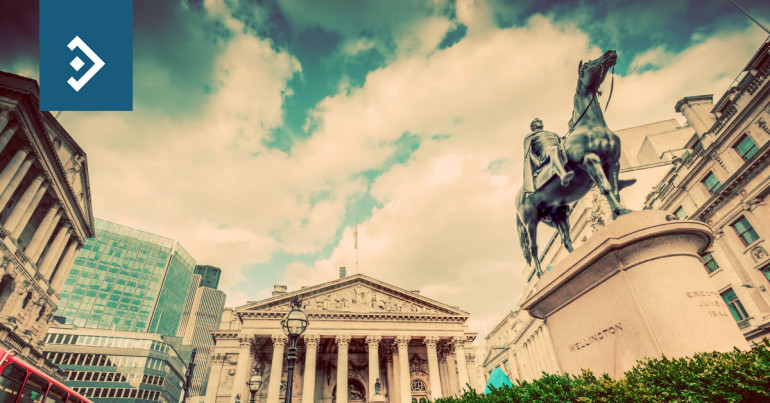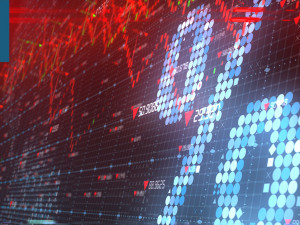
Rate hike cycle to continue
Morning mid-market rates – The majors
17th March: Highlights
- Bank of England to go for three in a row?
- FOMC hikes by 25bp, with plenty more to come!
- Euro pressured by divergence
Upwards pressure on inflation makes hike a necessity
The market is in little doubt that the Central bank is serious about trying to bring inflation back under control. However, it doubts its ability to do so, given the issues being faced by the economy.
The meteoric rise in energy prices that began even before Russia invaded Ukraine is one of several issues that need to be considered today.
Bank of England Governor, Andrew Bailey may even be justified in commenting that the oil price rise may be considered temporary unless the war in Ukraine carries on for a considerable time.
He is, however, unlikely to fall into that trap again given the criticism he faced over the way prices were affected by the bottlenecks created by the lockdowns.
The Chancellor of the Exchequer, Rishi Sunak, will be aware of the thoughts of the MPC when drafting his Spring Budget that will be delivered to Parliament next week.
He is being pressed to either cut the rate of VAT that is levied on fuel or introduce a windfall tax on the profits being made by oil companies.
He may do both, but the country still faces uncertainty as National Insurance Payments are due to increase and, raising the cap on fuel prices charged to consumers, then supplying aid to allow the public to pay the higher price would be counterproductive.
At the most recent meeting of the MPC, all nine members voted in favour of a hike in rates, with four voting for fifty basis-point and five for twenty-five.
With the situation having worsened, it is certain that the hawks will win out this time, although doubling rates at this time from fifty basis points to one percent may be considered excessive given the uncertainties faced by the economy.
The last time rates were at one percent was in February 2009 when the Bank was dealing with the financial crisis. At that time, the Central Bank could be considered the good cop, while the cuts to public services started by the then Chancellor George Osborne made him the bad cop.
Given Sunak’s reputation for generosity, the roles could be considered to have been reversed now.
The pound rose to come close to challenging resistance around the 1.3180 level yesterday. It reached a high of 1.3156, closing at 1.3149.
Considering your next transfer? Log in to compare live quotes today.
Powell sees a potential for rates to increase more rapidly
The rate hike that had been telegraphed to the market ended an extended period of speculation that began before then end of last year.
This signals the end of easy money that started around the time of the financial crisis.
Fed Chairman Jerome Powell in his press conference following the meeting commented that he considers every meeting going forward to be a live meeting. By this, he means that the committee could vote for a hike at every opportunity for an indeterminate period going forward.
He went on to say that the market mustn’t get prepared to take the committee for granted since it has the ability to raise rates more quickly if it believes that it is not making inroads into inflation quickly enough.
He predicted that inflation would begin to fall in the second half of the year, but the FOMC is prepared for every eventuality.
The committee was unanimous in believing that the time has come for interest rates to be normalized and for the Federal Reserve to begin to reduce the size of its balance sheet.
While rate hikes will help cut inflation, a part of its fall will be due to the improvement in the bottlenecks in supply chains.
There has been no discussion about front loading rate increases yet, the Fed has the tools to act, and should the need arise, it will use everything at its disposal to bring inflation down towards target.
There is clearly a danger that high inflation becomes entrenched, but that is not a core belief of the members of the FOMC.
Powell went on to say that the economy is gaining strength while the labour market remains tight. He acknowledged that the effect of the Omicron Variant was brief and thankfully mild, and this is now at an end.
Labour demand is still extraordinarily strong, and this is being seen across the entire country.
The rise in inflation even without rising energy prices has been caused by the fact that supply disruptions were both larger and longer lasting than predicted.
The3 dollar index reacted only mildly to the FOMC decision, due in no small measure that there had been more than enough advance guidance.
It fell to a low of 98.29 and closed at 98.37.
Zelensky calls for more air support in speech to congress
The calls for Ukraine to be demilitarized have been rejected by Kyiv, while calls for a ceasefire and the withdrawal of Russian troops and artillery has likewise fallen on deaf ears.
Given the fact that it is the largest and most powerful economy within the Eurozone and the country is in proximity to the conflict, it comes as no surprise that Germany is expected to be the economy most seriously affected should the fighting continue for an extended period.
The German Economy Ministry made a statement yesterday in which it commented that the effect of the conflict on the economy is hard to quantify now.
Its spokesperson went on to say that high energy prices caused by the fighting in Ukraine has led to trade and supply chains being seriously affected, just as a recovery from the effects of the Pandemic was beginning to take hold.
Private consumption will be affected by inflation this year. That comment while applying in particular to Germany will be true for the entire region despite it not being the gravest concern. In the eastern part of the region, security is still the greatest concern.
Data released so far this week points to a recession in Germany this year, which is certain to spread to other Eurozone nations.
German Ministers are still concerned about stagflation and believe that more should be done to counter the continued rise in inflation. Although the ECB turned a little more hawkish following last week’s rate setting meeting, the wait and see policy currently in place is driving fears rather than supplying comfort.
The euro rallied yesterday in that face of the wholly expected rate hike in the U.S.
It reached a high of 1.1036 and closed at 1.1045.

About Alan Hill
Alan has been involved in the FX market for more than 25 years and brings a wealth of experience to his content. His knowledge has been gained while trading through some of the most volatile periods of recent history. His commentary relies on an understanding of past events and how they will affect future market performance.”



